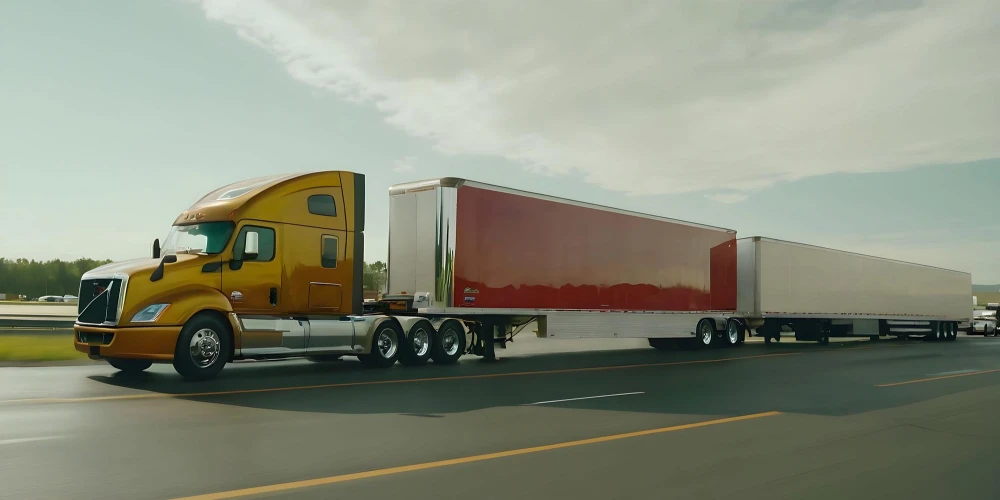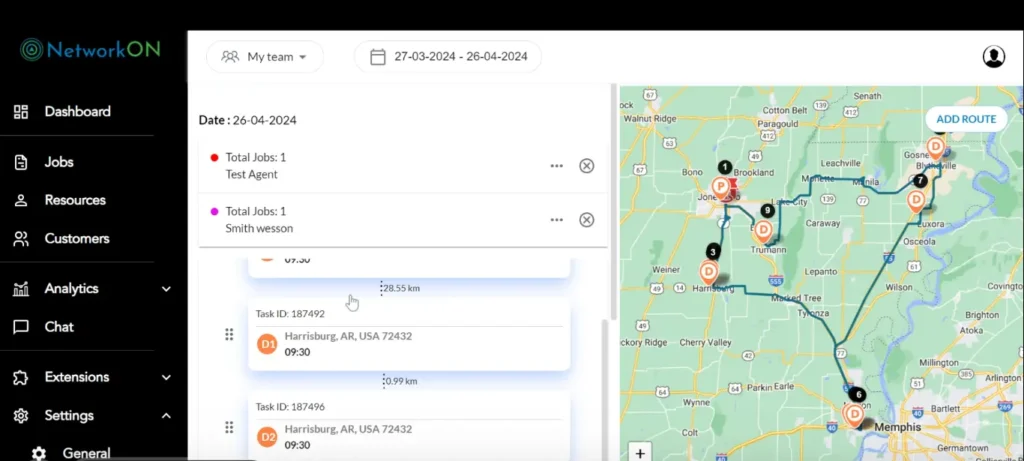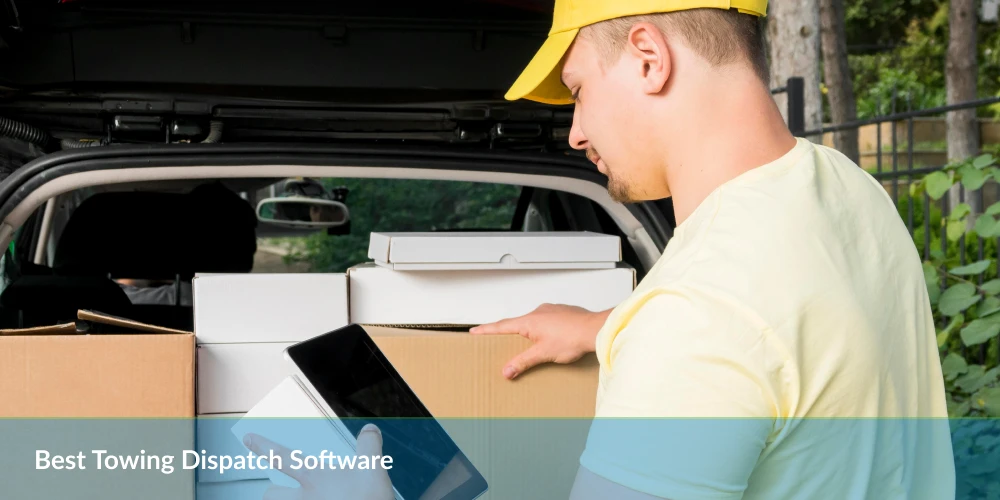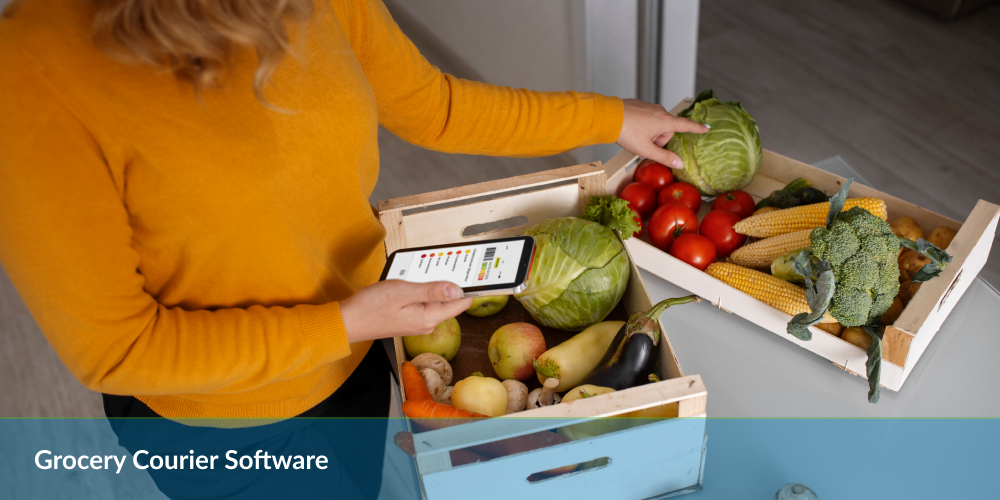Table of Contents
Expertly designed best towing dispatch software serves as the backbone of contemporary towing operations, offering a robust digital platform that efficiently coordinates, manages, and optimizes the dispatching of tow trucks. This sophisticated system integrates real-time information, allowing dispatchers to instantly track vehicle locations, monitor job status, and manage resources effectively.
The software’s advanced infrastructure enables seamless communication between drivers and dispatchers, ensuring that information is relayed promptly and accurately. By automating scheduling and routing processes, the software significantly reduces response times and operational inefficiencies, leading to a more streamlined and effective towing service.

Moreover, the deployment of such cutting-edge software not only enhances operational efficiency but also contributes to a substantial uplift in customer satisfaction. With its ability to provide accurate ETAs, real-time updates, and effective job management, the software ensures that customers receive timely and reliable service. This improved service quality fosters positive customer experiences and strengthens the business reputation.
Additionally, the best towing dispatch software’s data-driven insights enable towing companies to analyze performance metrics, optimize resource allocation, and make informed decisions that drive continuous improvement. Ultimately, harnessing this technology positions businesses to meet and exceed the industry’s ever-evolving demands, setting the stage for sustained growth and success.
Key Features to Look for in Top-Notch Towing Dispatch Software

Choosing the right towing dispatch software can dramatically enhance the efficiency and reliability of towing operations. A comprehensive suite should offer several critical features that address the unique challenges of the towing industry.
Real-Time Tracking and Dispatching
- GPS and telematics integration allows for real-time location tracking of tow trucks, leading to quicker dispatch and more efficient route planning.
- Mobile app access for drivers significantly improves communication and responsiveness, ensuring drivers receive and acknowledge job details instantaneously.
Ease of Use and User Interface
User-friendly software accelerates the learning curve for new users. It diminishes the need for extensive training, facilitating rapid adoption across a towing firm’s workforce.
Invoicing and Payment Processing
An integrated system that covers billing and payment processing facilitates immediate invoicing, boosts cash flow, and minimizes delays in payment collection.
Customer Relationship Management (CRM)
Effective customer interactions and data management confirm that client information is accessible and organized, fostering improved service and retention.
Reporting and Analytics
Analysis of operational data is indispensable. Access to comprehensive reporting tools empowers towing companies to make informed decisions that can lead to improved service and profitability.
Roadside Assistance Management
Tools for managing roadside service calls contribute to a more streamlined process, from initial contact to service completion, benefiting the service provider and the customer.
Impound and Lot Management
Efficient handling of impounded and stored vehicles reduces errors and administrative burden and ensures accurate record-keeping and compliance with regulations.
Choosing the Right Software for Your Towing Business
Various factors come into play when selecting the best towing dispatch software, with cost considerations often at the forefront of the decision-making process. The choice between subscription models and one-time payments will shape the initial and long-term financial commitments. A subscription model offers the benefit of lower upfront costs and consistent updates. In contrast, one-time purchases require a larger initial investment but can reduce costs.
Another critical aspect is the software’s ability to integrate with GPS and telematics systems. Seamless integration can significantly enhance service quality and response times by providing real-time insights and streamlining communication channels.
The availability of mobile apps for drivers will directly influence the efficiency of your operations. Access to critical information and functionalities through their mobile devices empowers drivers to perform their duties with greater competence. It provides a direct line of communication with dispatchers.
Ease of use and user interface should also be evaluated. A clean and intuitive interface simplifies tasks for your team, reducing the time needed for training and minimizing the risk of input errors, which, in turn, bolsters operational efficiency.
Business Benefits: Comparing Digital Dispatch vs. Traditional Methods
Digital dispatch software revolutionizes towing operations by streamlining communication and job assignment processes. Rather than relying on two-way radios and manual dispatch methods, digital systems offer immediate information transmission. Fleet managers easily monitor and assign tasks, while drivers receive real-time updates, reducing response time and increasing customer satisfaction.
Efficiency and Time-Saving Benefits
By integrating digital dispatch software, towing companies experience a significant uptick in operational efficiency. Drivers spend less time awaiting instructions and more on the road executing tasks. This synchronization of activities ensures that resources are optimized, schedules are kept, and client’s needs are met promptly, culminating in optimized service delivery and improved profitability.
The Environmental Impact of Adopting Software That Assists with Fuel Management
Software facilitating effective fuel management can significantly lower a fleet’s carbon footprint. Advanced routing algorithms enhance route planning, reducing unnecessary travel and minimizing fuel consumption. Furthermore, keeping track of idling times leads to increased awareness and practices that favor an eco-friendly approach. The result is a tow company that boosts its bottom line and contributes to creating a healthier planet.
The Significance of Scalability and Security in Towing Dispatch Software
Businesses striving for growth must recognize software scalability; the best towing dispatch software must adapt to increasing workloads. Enhancing capacity or adding functionalities without compromising performance ensures that as a towing company expands, its dispatch system seamlessly accommodates the growth.
Security and data protection form the bedrock of client trust. Robust towing dispatch solutions protect sensitive information against breaches. The software shields customer data and business information by implementing advanced encryption protocols, ensuring compliance with regulations like GDPR and others depending on your jurisdiction.
Software Scalability and Customization
Choosing a dispatch solution offers the flexibility to customize features tailored to unique business needs. Future enhancements or integrations do not necessitate an overhaul but are integrated with the existing system. This adaptability allows businesses to remain competitive and responsive to market changes.
How to choose a solution that grows with your business
Select a towing dispatch solution with a clear upgrade path. Look for providers who demonstrate a commitment to innovation and regular updates. The capability to scale should align with anticipated user growth, additional services, and entry into new markets without disrupting operations.
Security and Data Protection
Security measures in efficient towing dispatch software safeguard against unauthorized access and data loss. Data encryption, secure servers, and regular security audits are non-negotiable features to prevent the exploitation of sensitive data. Addressing potential threats proactively minimizes vulnerability and protects the integrity of business operations.
Ensuring customer and business data is secure
Diligence in maintaining the security of customer and business data reaps long-term benefits. Towing dispatch software with layered security measures, including multi-factor authentication, role-based access control, and continuous monitoring, helps mitigate risks and uphold data privacy, fostering customer confidence and loyalty.
Selecting a Vendor with Comprehensive Support
When selecting the best towing dispatch software, one critical factor often overshadows the rest—the level of support the vendor offers. A provider’s commitment to training and support enhances the learning curve. It ensures that your team can leverage the software’s full potential.
Training and Support PROVIDED BY Software Vendors
Established vendors offer extensive training sessions, tutorials, and documentation. These resources empower users to master the software’s capabilities. The presence of a dedicated support team ready to tackle any arising issue can make a substantial difference in software efficacy, contributing to minimal downtime and optimized operations.
What kind of training and ongoing support can you expect?
High-quality providers typically present a mix of personalized training, including one-on-one sessions, group webinars, and self-service learning via online platforms. Ongoing support often manifests as around-the-clock help desks, user communities, and regular software updates that refine functionality and security with evolving industry demands.
Implementation Process and Onboarding
The initial phase of the best towing dispatch software implementation is paramount. A vendor skilled in this process will mitigate potential disruptions and facilitate a smooth transition. This involves constructing a tailored onboarding plan, conducting thorough data migration, and meeting all hardware and software requirements.
How to ensure a smooth transition to a new SOFTWARE system
Clear communication channels between your business and the provider are essential to ensure a seamless switch. A punctilious project manager should oversee each step, anticipate challenges, and maintain momentum. By adequately preparing your team through pre-launch training, the vendor equips them with the knowledge to address teething problems swiftly, reducing the learning curve and expediting adoption.
Making a Well-Informed Decision
When choosing the best towing dispatch software, the insights from those with hands-on experience with these systems are invaluable. Reviews and testimonials shed light on real-world usage, performance, and the challenges a certain software may pose. Reflect on feedback, not just for its content, but also for patterns that may emerge, guiding towards a clear understanding of a software’s strengths and drawbacks.
Industry colleagues often encounter similar operational bottlenecks and regulatory hurdles. By examining their stories, you glean practical wisdom, noticing which software solutions align with the nuanced demands of the towing industry. These reflections can significantly sway the decision-making process, leading to a choice that aligns with industry best practices and operational efficiency.
Compliance with Transportation Regulations
Regulatory compliance in the towing industry is non-negotiable. The chosen dispatch software must ensure adherence to transportation laws and guidelines. With the right software, companies avoid costly fines and maintain their reputation, leveraging a system that automates compliance measures and updates in conjunction with changing legal requirements.
Opting for software that integrates compliance-related features demonstrates a proactive approach to regulatory adherence. This safeguards the business and provides peace of mind, knowing compliance is continuously managed within the software’s ecosystem.
Key Takeaways
Enhanced Operational Efficiency: The best towing dispatch software significantly improves efficiency by providing real-time tracking, streamlined communication, and optimized route planning, leading to faster response times and increased customer satisfaction.
Comprehensive Feature Set: Key features to look for include GPS integration, mobile app access for drivers, user-friendly interfaces, CRM tools, invoicing, payment processing, and robust reporting and analytics, all of which address the unique challenges of towing operations.
Scalability and Security: The software should be scalable to accommodate business growth and equipped with advanced security measures, such as data encryption and compliance with regulations, to protect sensitive information and ensure long-term reliability.
Vendor Support and Training: Selecting a vendor that offers extensive training, ongoing support, and a smooth implementation process is crucial for maximizing the software’s potential and ensuring a successful transition to digital dispatching.
Regulatory Compliance: The best towing dispatch software can automate and update compliance measures, helping companies adhere to transportation regulations, avoid legal complications, and maintain a strong reputation in the industry.
Wrapping It Up!
When choosing the best towing dispatch software, several factors should be considered to ensure the system meets the unique demands of a towing operation. One crucial aspect is information security, which is vital for protecting sensitive data related to both the business and its customers. Software options rated highly by users on platforms like Capterra often emphasize robust security features, ensuring that data integrity is maintained while preventing unauthorized access. Integration with Global Positioning System (GPS) technology is another key feature, as it allows real-time vehicle tracking, optimizing dispatch efficiency. Moreover, support for Android and Windows 10 operating systems ensures compatibility across various consumer electronics, including mobile devices.
An effective towing dispatch software should also feature a user-friendly point-and-click interface, enabling dispatchers to assign tasks and monitor progress with minimal training quickly. In addition, advanced internet geolocation capabilities can further enhance vehicle tracking accuracy, ensuring faster response times and improved customer satisfaction. Many solutions today, such as those reviewed on technology blogs, also offer integration with accounting systems like QuickBooks, helping streamline payroll, accounts receivable, and accounts payable processes. This integration not only aids in maintaining accurate financial statements but also helps track the cost associated with each dispatch, contributing to overall profitability.
Another critical component is the software’s ability to handle various information technology tasks, including database management and software maintenance. For instance, a reliable tracking system should be capable of storing large volumes of data securely while allowing for easy retrieval when needed. Enterprise application integration capabilities are also essential, as they ensure that the dispatch software can seamlessly connect with other business systems, such as accounting software or cloud computing platforms. This level of integration improves operational efficiency and reduces the likelihood of data redundancy or errors.
Finally, towing dispatch software should be scalable and flexible to meet the growing needs of a business. Whether the software is used in a small office or across a large fleet, it should offer features like build automation and web application support to keep operations running smoothly. Additionally, including simultaneous localization and mapping (SLAM) technologies can further enhance the precision of dispatch operations. With the increasing need for information security in today’s digital landscape, selecting a solution that offers regular updates and plug-ins to address emerging threats and vulnerabilities is crucial.
What are you waiting for? Discover how NetworkON can elevate your towing dispatch operations with cutting-edge security, real-time GPS tracking, and seamless integration. Try it today!
Frequently Asked Questions
What are the key features of the best towing dispatch software?
Key features include real-time tracking and dispatching with GPS integration, a user-friendly interface, mobile app access for drivers, invoicing and payment processing capabilities, customer relationship management (CRM) tools, robust reporting and analytics, and roadside assistance management. Additionally, impound and lot management features, security measures like data encryption, and scalability options are crucial for growing businesses.
How does towing dispatch software improve operational efficiency?
The best towing dispatch software streamlines communication and job assignment processes, reducing response times and improving customer satisfaction. It allows for real-time tracking of tow trucks, optimizing route planning, and reducing unnecessary travel. The software also automates invoicing and payment processing, leading to faster cash flow. Integrating with other systems like accounting and CRM reduces administrative burdens and ensures a smooth, efficient workflow.
What should I consider when selecting a towing dispatch software vendor?
When choosing a vendor, consider their support level, including training sessions, tutorials, and ongoing assistance. Evaluate the vendor’s commitment to innovation and regular updates, ensuring the software can scale with your business. It’s also important to assess the implementation process, including data migration and onboarding support, to ensure a smooth transition to the new system. Additionally, check for robust security features and compliance with industry regulations.
How does towing dispatch software help with regulatory compliance?
The best towing dispatch software can automate compliance measures and ensure adherence to transportation regulations, reducing the risk of fines and legal issues. The software can be updated regularly to reflect changes in laws and guidelines, helping companies stay compliant. Features like secure data management, role-based access control, and continuous monitoring further enhance compliance efforts, protecting the business and its customers’ information.





0 Conversations